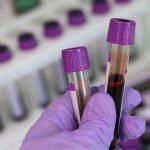Omicron variant is three times more contagious than delta
In a new study from the University of North Carolina, researchers found that the omicron variant is three times more contagious than delta.
Remember alpha,...
Scientists find a causal link between blood group and severe COVID-19
In a new study from King's College London, researchers analyzed over 3000 proteins to identify which are causally linked to the development of severe...
Older people have more COVID-19 antibodies, study finds
With the emergence of SARS-CoV-2 variants worldwide, the pandemic’s spread is accelerating.
In a recent study published in Scientific Reports, researchers found that those who received...
All three Omicron subvariants blunt vaccine and antibody treatment effectiveness
In a new study from Columbia University, researchers found only one currently authorized antibody treatment retains its activity against all Omicron subvariants.
They also found...
Ray Dalio: My Advice for The U.S. President
Ray Dalio famously founded Bridgewater Associates out of his two-bedroom apartment in 1975.
Since then, he has amassed a net worth of $17 billion while building...
COVID-19 booster critical as vaccine-induced antibodies wane in 6 months, don’t protect against Omicron
In a new study from Ohio State University, researchers found neutralizing antibody levels produced by two-dose mRNA vaccines against the original and early variants...
2 in 5 COVID-19 survivors have a new disability, study finds
In a recent study published in Critical Care, researchers found six months after recovering from COVID-19 critical illness, one in five people had died, and...
Scientists find more effective COVID-19 treatment
In a new study from the University of Colorado, researchers examined a key aspect of the immune system during COVID-19: the interferon response.
They found...
Milk may help fighting COVID-19, study finds
As the COVID-19 pandemic continues to claim lives around the world, dairy scientists may have a surprising role to play.
In a new study from...
Scientists find durable immunity against COVID-19 variants
In a new study from Oregon Health & Science University, researchers found the blood of people infected by COVID-19 showed telltale signals of immunity...










